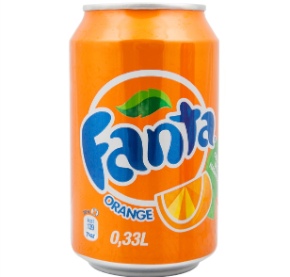According to the AP, Cocoa Cola and PepsiCo are going to remove brominated vegetable oil (BVO) from all of its drinks that contain it. That compound, which is patented as a flame retardant, is not approved for use in the European Union or Japan. It is found in Fanta, Powerade, Mountain Dew, and Fresca, along with some beverages sold as fountain drinks. This is a global change. BVO was removed from Gatorade in 2013.
 A 2012 Change.org petition started by Sarah Cavanagh, a teenager from Mississippi, started the interest in the chemical and the pressure on PepsiCo. Brominated vegetable oil is used as a stabilizer for flavor oils in the beverages. It is a vegetable bonded with bromine, an element, that keeps the citrus oils suspended and mixed into the liquid and gives the beverage its cloudy appearance.
A 2012 Change.org petition started by Sarah Cavanagh, a teenager from Mississippi, started the interest in the chemical and the pressure on PepsiCo. Brominated vegetable oil is used as a stabilizer for flavor oils in the beverages. It is a vegetable bonded with bromine, an element, that keeps the citrus oils suspended and mixed into the liquid and gives the beverage its cloudy appearance.
BVO has been on the GRAS (generally regarded as safe) list since 1958, but it was reclassified as an “interim food additive” in 1970 after studies linked the chemical with heart disease in rats. That status means it is permitted for use in foods and beverages, pending further study. The FDA has not studied the chemical in decades, and the last update on it was in 1977.
The Center for Science in the Public Interest (CSPI) lists BVO as one of the food additives to avoid, under “caution”. They state, “safety questions have been hanging over BVO since 1970, when the FDA removed BVO from the GRAS list of food ingredients.” BVO is one of only four interim-allowed additives in the food and beverage industry. The agency also states that BVO “leaves residues in body fat and the fat in brain liver, and other organs. Studies suggest hat BVO might be harmful to people who drink large amounts of soft drinks that contain it.”




